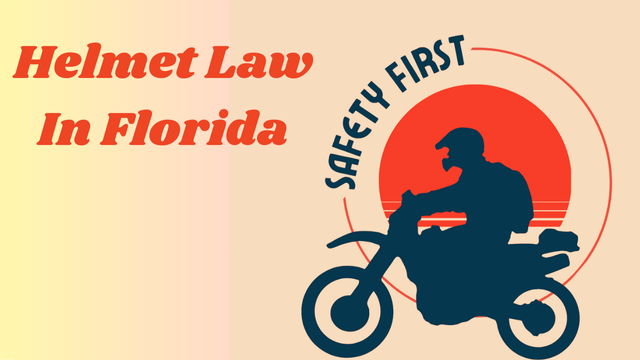The likelihood of running into danger can seem unexpectedly high when you live in a place like Florida, where there is an abundance of sunshine and vacationers.
Knowing Florida’s self-defense laws, especially the “Stand Your Ground” statute, is essential whether you’re a local driving a congested roadway in Miami or a visitor taking in the tranquil beaches of St. Petersburg.
Since it was passed in 2005, this law has generated a lot of interest and discussion. On the one hand, it gives people the ability to protect themselves without having to flee.
On the other side, there are worries that it could make things worse. In order to give you the information you need to defend yourself and comprehend your legal rights, this thorough handbook attempts to demystify Florida’s Stand Your Ground statutes.
What is the Stand Your Ground Law in Florida?
Florida Statute 776.012, also known as the “Stand Your Ground” statute, does away with the old “duty to retreat” when people are in immediate danger.
This implies that you do not need to flee a dangerous situation before defending yourself with force, including lethal force. The idea of a “reasonable belief”—basically, the conviction that employing force is required to stop:
- Imminent death or serious injury: This can happen to you or someone else.
- A forcible felony is a major crime that involves violence or the threat of violence, including robbery, kidnapping, or sexual assault, and it is about to be committed.
Your acts must be legally “justified” in order for the Stand Your Ground defense to be successful. The following crucial points form the basis of this justification:
- Reasonability: Given the entirety of the situation, the perception of threat must be fair.
- Force Initiation: You are not allowed to be the first person to use force.
- Force proportionality: The amount of force applied must match the danger.
Important Points and Restrictions
Although Florida’s Stand Your Ground statute gives people more power, it’s vital to be aware of its restrictions and essential factors. Here are some important things to keep in mind:
The burden of proof is on you to prove that your actions complied with the Stand Your Ground law. This could be security footage, witness accounts, or other proof that backs up your “reasonable belief” that there is risk.
Duty to retire if feasible: The law requires retreat if it can be carried out “with complete safety,” even though there isn’t a universal duty to do so. This implies that it might not be appropriate to use lethal force if there is a safe way to flee.
Threat imminence: The force used to legitimize the threat must be present right away. Stand Your Ground would not apply to using lethal force in reaction for a previous threat.
The person who is threatening you must have malicious intent in order to hurt you or break the law.
Dwelling presumption: According to Florida law, using force to defend yourself against an intruder in your home, residence, or inhabited vehicle is always acceptable.
When to Get Legal Advice?
It’s critical to navigate legal difficulties, particularly following a self-defense incident. In the following situations, it is strongly advised to seek legal counsel:
- You used force in self-defense: A lawyer can assist you comprehend your legal rights and present a compelling case that complies with the provisions of the Stand Your Ground law.
- The police are questioning what you’re doing: Your rights are safeguarded and you are prevented from unintentionally incriminating yourself when you have legal counsel.
- You are facing criminal charges: A competent lawyer can support your defense and guarantee a just verdict if you are accused of a crime after defending yourself with force.
Beyond Stand Your Ground: Other Florida Laws Regarding Self-Defense
One important component of self-defense in the state of Florida is the Stand Your Ground law. It isn’t the only pertinent legal idea, though. Other laws pertaining to self-defense that you should be aware of include as follows:
- Duty to retreat: The classic “duty to retreat” may still be applicable in circumstances where “stand your ground” is not appropriate. You are legally required to flee before employing force if there is a safe way out.
- Defense of others: Under the same rationale concepts, the Stand Your Ground law permits you to use force to protect someone else from immediate danger.
- Property defense: Under Florida law, you can use reasonable force to keep your property safe from harm or theft. But it is rarely acceptable to use lethal force only to defend property.
Reducing Hazards and Encouraging Security
Although Florida’s Stand Your Ground law gives people more power, it’s equally critical to put safety and de-escalation first wherever feasible. You can be proactive by doing the following:
- Pay attention to your surroundings: When going somewhere new or in public, be mindful of your surroundings and any potential dangers.
- Steer clear of conflicts: Give de-escalation top priority if something seems dangerous. Try to keep your distance, move away, or use words to defuse the situation.
- Invest in self-defense training: Gaining knowledge of fundamental self-defense techniques will increase your self-assurance and provide you the tools you need to deal with dangerous situations.
- Carry non-lethal deterrents: To help fend off intruders without using fatal force, think about keeping pepper spray, a personal alarm, or other non-lethal deterrents on hand.
Typical Myths Regarding Standing Your Ground
Regarding Florida’s Stand Your Ground law, there are a number of misunderstandings. Here are some explanations:
“Stand Your Ground” does not imply “stand and fight”; while self-defense is permitted by law, it is still possible to flee to safety if practical.
The Stand Your Ground defense is only valid in places where you have a legal right to be, like your home, place of employment, or a public area.
Accountability is not eliminated by the legislation; using excessive or needless force may still result in legal action.
Resources:
- Understanding Florida’s Stand Your Ground Laws: What You Need to Know
- Florida Statutes
- Florida Department of Legal Services




